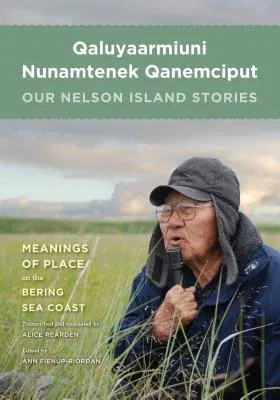Ann Fienup-Riordan
(Author)Qaluyaarmiuni Nunamtenek Qanemciput / Our Nelson Island StoriesPaperback, 7 July 2011

Qty
1
Turbo
Ships in 2 - 3 days
In Stock
Free Delivery
Cash on Delivery
15 Days
Free Returns
Secure Checkout

Print Length
496 pages
Language
English
Publisher
University of Washington Press
Date Published
7 Jul 2011
ISBN-10
0295991356
ISBN-13
9780295991351
Description
Product Details
Author:
Book Format:
Paperback
Country of Origin:
US
Date Published:
7 July 2011
Dimensions:
25.15 x
17.78 x
3.56 cm
Genre:
Native American
ISBN-10:
0295991356
ISBN-13:
9780295991351
Language:
English
Location:
Seattle
Pages:
496
Publisher:
Weight:
1020.58 gm